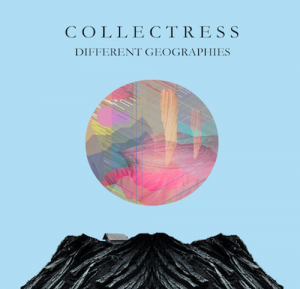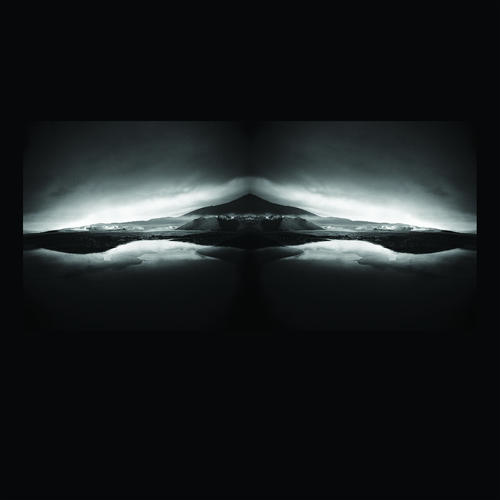 Collectress have been experimenting with their twenty-first century chamber music for the bet part of twenty years. Since the release of 2014’s Mondegreen, the group no longer find themselves within the Brighton orbit, and that distance plus life’s other opportunities, has found them slightly changing the way they work. Snatching opportunities where they came, they would reconvene to thrash out the bones of the pieces here on Different Geographies.
Collectress have been experimenting with their twenty-first century chamber music for the bet part of twenty years. Since the release of 2014’s Mondegreen, the group no longer find themselves within the Brighton orbit, and that distance plus life’s other opportunities, has found them slightly changing the way they work. Snatching opportunities where they came, they would reconvene to thrash out the bones of the pieces here on Different Geographies.
Theirs is a sound of mystery and intrigue, using strings to generate a resonant and transportative sound that, when allied with electronics and laptops, pushes the envelope of what might be expected from a modern string quartet into something far more adventurous. There is a touch of Rachel’s in some of the neo-classical leanings, but they tended to stay fairly true to the chamber music ideal — whereas for Collectress it is a mere jumping off point into more esoteric waters.
The album opens with a weave of harmonic guitar and flute with the sound of ghosts (possibly a saw) vibrating in the backdrop. It paints an after-image of woodland mystery and an air of caution. Should you go ahead and follow? The violin is welcoming, but the cello not so much; and it becomes more alarming as the plucked violin on “Mauswerk” comes on like a surrogate voice, drawing you on a merry dance, one that contains hints of strangeness. The instruments swap places with a slight change of expression here, a smile and a nod, always beckoning but just out of reach. An abandoned jetty drifts into view through the mists of “Harbour”, with cacophonous vocals coming on like the last few gulls harassing the ghosts of the fisher-folk who plied their trade in this place that resonates with sense of rebirth. At times, their love of things hypnotic takes over, and the circular piano motif on “In The Streets, In The Field” sweeps up the violin and bass, connecting them to the Earth. Wreathes of mist draw power from this remote mountainside, which is busy with new growth and the beating of distant hearts. Andy Waterworth‘s double bass picks its way beautifully through this elemental landscape as the group provide him a safe path through the rocks. There is an odd time signature on “Landing”, but the hand-claps and jerky electric piano are vibrant, demanding arms waved in the air and the tossing of hair. It feels like being at a gypsy campfire, different dancers whirling you around the edge, spinning faster and faster until you burst still dancing into the “Archive”.“She Must Shut Her Eyes” removes all that momentum and throws a more melancholy shadow over things. The mournful interjection of electronic distortion feels as though a distant radio is trying to interrupt. It is slow, mournful and a little disconcerting; and when the vocals arrive, they are captivating in their strange structure, spending the length of the song rearranging words into one sentence. You feel some connection here, as if these mystery protagonists are finally showing their faces — but as the album draws to a close, so it is whisked away again in a whirl of Ghost Box-like sci-fi electronica changing the mood, changing again as the Erik Satie-like piano of closer “Roaming Bones” descends into jazzy gentility and then descends into a hypnotic reverie from which it is almost impossible to withdraw.
It is a perfect ending to an album that asks as many questions as it answers, and those question draw you in time and again. Collectress have provided us with a treat for the ears in these jaded times, one to lose yourself in just for a little while.-Mr Olivetti-



